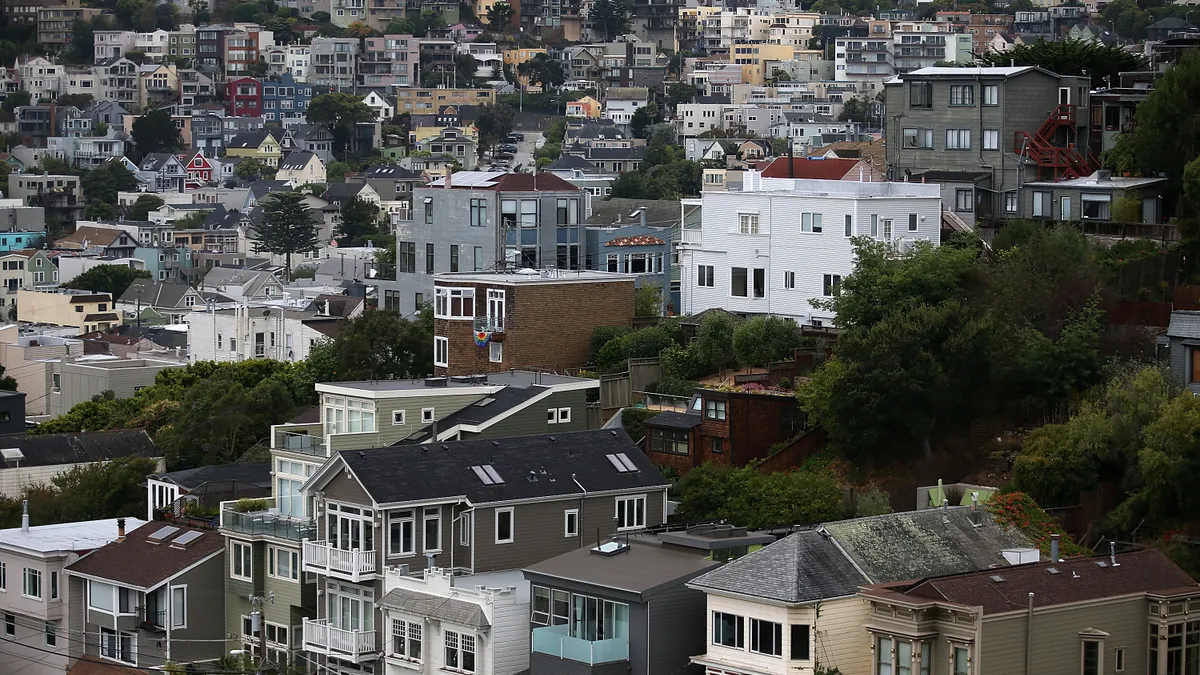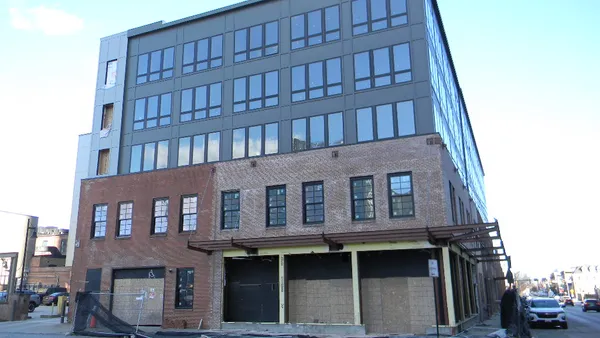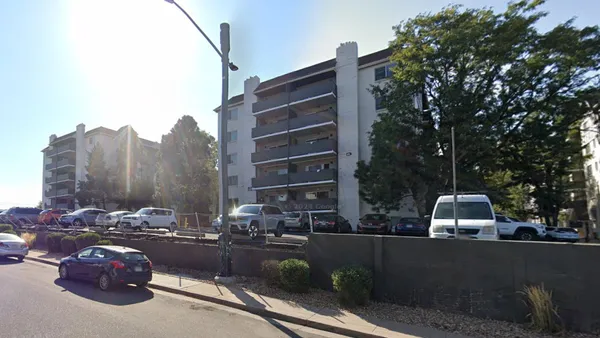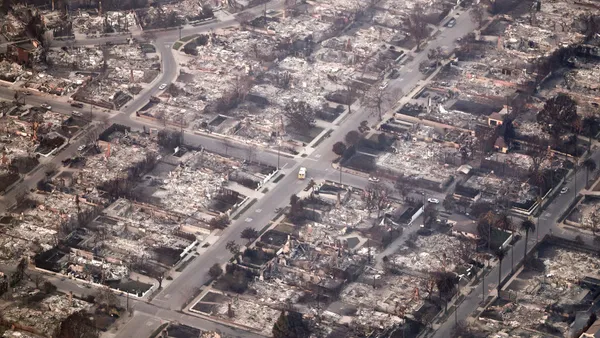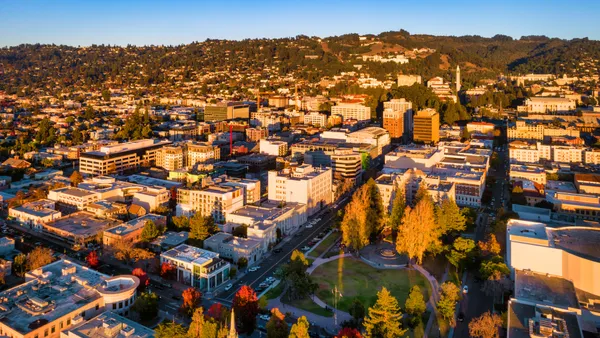Dive Brief:
- The California Department of Housing and Community Development (HCD) will conduct a review of San Francisco’s housing policies and practices to identify and remove barriers to the approval and construction of new housing. The review is the department’s first of a city’s housing processes.
- The cost of building housing in many U.S. cities has increased due to lengthy and complex municipal approval processes. San Francisco has the longest timeline in the state for advancing housing projects to construction and among the highest in housing and construction costs, the department said in a press release, Tuesday.
- “We are deeply concerned about processes and political decision-making in San Francisco that delay and impede the creation of housing and want to understand why this is the case,” said HCD Director Gustavo Velasquez in a statement. “We will be working with the city to identify and clear roadblocks to construction of all types of housing.”
Dive Insight:
The housing crisis is especially prevalent in California, where a 2022 statewide housing plan found the state has a need for over 2.5 million additional homes. San Francisco is considered by estimates to be the most expensive place to live in the U.S. It is also falling far short of meeting its regional lower-and moderate-income housing goals, which include adding more than 82,000 housing units by 2031, HCD stated.
Experts say restrictive land-use and zoning policies and long and complex approval processes have made constructing new housing costly and difficult, contributing to the housing shortage.
Christopher Ptomey, executive director of the Terwilliger Center for Housing at the Urban Land Institute, said in an email that in U.S. cities, the processes to build housing can be “complex and complicated,” contributing to “enormous uncertainty,” a lot of time and higher costs, which can be even more expensive in an inflationary environment.
According to HCD, San Francisco’s policies are especially onerous.
The department said it has received more complaints about San Francisco’s policies than about any other local jurisdiction in the state. Seattle, which is comparable in size, approves housing construction at three times the rate of San Francisco, the department also noted in the announcement.
HCD, with the University of California, Berkeley Institute of Urban and Regional Development, will conduct “a comprehensive analysis” of San Francisco’s approval policies and practices over the next nine months, the department stated. The review will examine discretionary decision-making patterns that have caused long delays and identify barriers to the approval and development of housing for all income levels. The department also said if it finds policies and practices in violation of state housing laws, it will pursue those violations with the state attorney general’s office.
Experts agree that the state’s probe could make building more housing in the city more cost-efficient.
Ptomey said states and cities “should work together to streamline entitlement processes and limit development costs to enable the delivery of more housing units, particularly at rents and prices affordable to moderate- and lower-income households.”
Carl Gershenson, project director at The Eviction Lab at Princeton University, said he’s seen a lot of “great” housing development proposals in U.S. cities get scaled back in size or have their affordability component eliminated or reduced during a “grueling process” of community meetings and zoning and architectural review board meetings.
“I think that our city governments make it harder and it reduces the amount of housing available and it drives up the cost to build,” he said.



